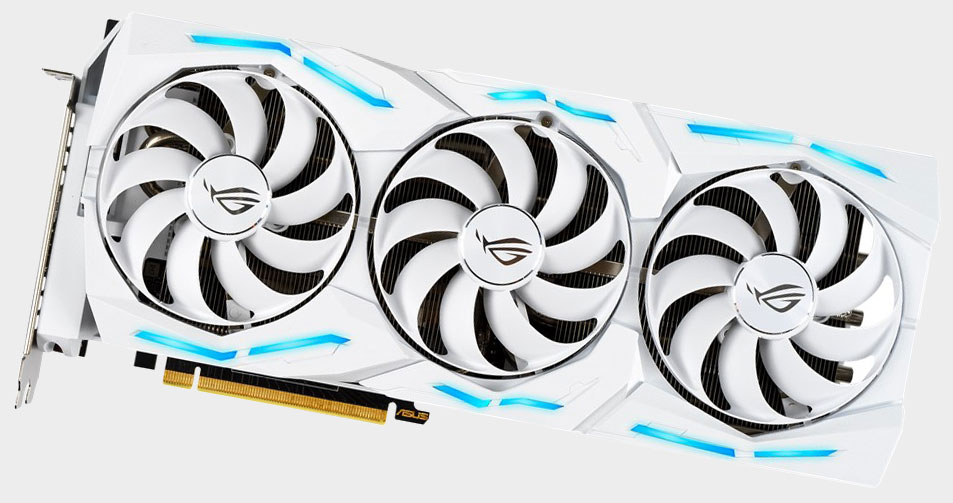Asus went nuts overclocking this white-themed RTX 2080 Ti
The use of 'hand-selected chips' allowed Asus to give this card an aggressive overclock.

Asus is rolling out an ROG Strix GeForce RTX 2080 Ti White Edition graphics card that is as fast as the model name is long. It sports a factory overclock, like many custom cards do, except we're not talking about a measly 15MHz, or even a 50MHz bump.
"We tune these hand-selected chips at the factory to run at up to 1,770MHz in the card’s OC Mode clock speed profile, up from a 1,545MHz boost frequency on standard RTX 2080 Tis and higher even than the 1,665MHz the normal ROG Strix card targets. We overclock the 11GB of GDDR6 memory to 14.8Gbps out of the box, too," Asus explains.
That's a generous 225MHz overclock over Nvidia's reference blueprint, and a 135MHz jump over Nvidia's overlocked Founders Edition model. Equally impressive, Asus was able to achieve the aggressive boost frequency while sticking to air cooling.
This mainly speaks to the binning process. Each GPU that makes the cut for the limited edition card has been "individually selected for its high clockspeed potential." You could potentially see the same kind of overclocking results on any random RTX 2080 Ti model, but it's like playing the lottery—if you're lucky, you'll hit it big.
If you want to try your luck even further on this card, Asus allows users to manually raise the power limit all the way to 360W in its is GPU Tweak II utility. For reference, the power limit on the Founders Edition model is 260W (and 250W for a regular RTX 2080 Ti).
The card draws power from a pair of 8-pin PCIe connectors, which is the standard configuration on the RTX 2080 Ti. What's not standard, though, is a 16-phase VRM. In theory, this should deliver cleaner power to the GPU, and help keep things stable.
Asus says the card started shipping on November 28, though I have not been able to find any vendors selling it. There's no mention of price. According to Cowcotland, however, it runs around €1,600, which is about $1,772 in US currency. That makes it a tough sell—other RTX 2080 Ti cards can be had for around $700 less.
Keep up to date with the most important stories and the best deals, as picked by the PC Gamer team.
That final 5-10 percent increase in performance is going to cost you, in other words. But if you're trying to set benchmark records, or build a snowman-themed PC, maybe it's worth it.
Paul has been playing PC games and raking his knuckles on computer hardware since the Commodore 64. He does not have any tattoos, but thinks it would be cool to get one that reads LOAD"*",8,1. In his off time, he rides motorcycles and wrestles alligators (only one of those is true).


